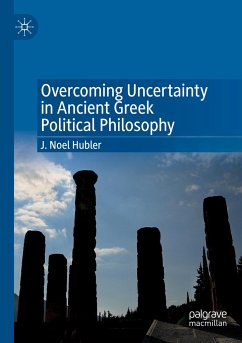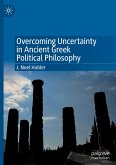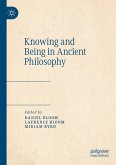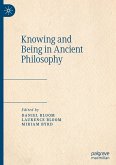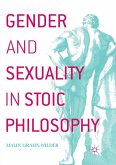Overcoming Uncertainty in Ancient Greek Political Philosophy makes an historical and theoretical contribution by explaining the role of opinion in ancient Greek political philosophy, showing its importance for Aristotle's theory of deliberation, and indicating a new model for a deliberative republic. Currently, there are no studies of opinion in ancient Greek political theory and so the book breaks new historical ground.
The book establishes that opinion is key for the political theories of Plato, Aristotle, and the Stoics because each sees uncertainty as a problem that needs to be overcome if one is to establish a virtuous polity. Since they have different notions of the nature of the uncertainty of opinion, they develop very different political strategies to overcome it. Thebook explains that Plato's and the Stoics' analyses of uncertainty support oligarchy and monarchy, respectively, and that theoretical support for deliberate politics requires a more nuanced understanding of uncertainty that only Aristotle provides.
The book establishes that opinion is key for the political theories of Plato, Aristotle, and the Stoics because each sees uncertainty as a problem that needs to be overcome if one is to establish a virtuous polity. Since they have different notions of the nature of the uncertainty of opinion, they develop very different political strategies to overcome it. Thebook explains that Plato's and the Stoics' analyses of uncertainty support oligarchy and monarchy, respectively, and that theoretical support for deliberate politics requires a more nuanced understanding of uncertainty that only Aristotle provides.

